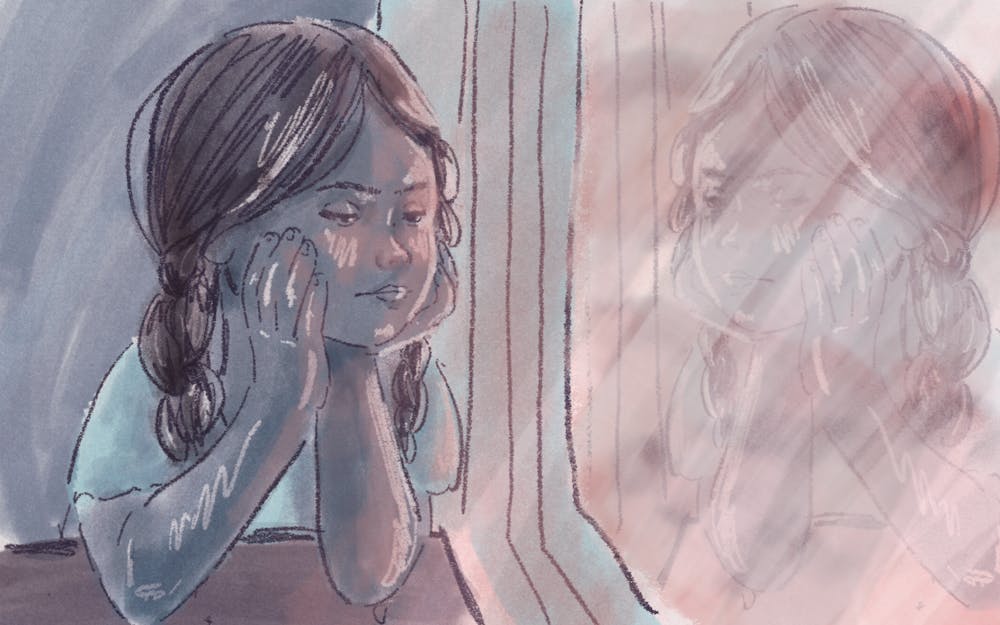I sort of think of my life as beginning my junior year of high school.
That was the year I made the decision to return to public schooling after having been homeschooled since fourth grade. Actually, that’s not exactly right: legally-speaking, I was never officially “homeschooled.” Rather, my parents had enrolled me in Connections Academy, an online public school that serves as an alternative to what we called “brick-and-mortar schools.”
Theoretically, the school was no different than taking online classes through a community college or other university. There were teachers whom you met virtually, official education materials like textbooks and science supplies, opportunities to take field trips to meet fellow students and a big state certification.
In reality, the “online public school” moniker was really a fancier, more complex way to say “homeschool.” Or, at least, my parents treated it as such, which is really all that mattered.
I didn’t really have any friends during this six-and-a-half-year period. We didn’t go on many of the field trips Connections Academy promised us, and the few we did go on — I specifically remember going to the Indianapolis Zoo, for example — were pointless because, by this point, I was so socially stunted I never talked to anyone but my family.
The years I spent there are a blur now, honestly. With no life outside of my home, and no real recollection of any of the things I learned, it became easy to block a lot of this time from my memory. It’s a weird, hazy thing now: something that happened, but something I don’t have any sort of attachment to.
It was especially hard when I finally broke free and made the decision to attend one of those brick-and-mortar schools when I finished my sophomore year of high school. Junior year wasn’t easy — I essentially had to make up for more than five years of social isolation all at once, at a time when I was too insecure and embarrassed to explain my situation to anyone. But, somehow, I made it through, and I slowly learned to adapt.
About four years later, I think it’s doubtful anyone would even assume I had been homeschooled without my having told them — that is, I’ve been successful.
[Related: OPINION: Growth means independence]
According to the National Home Education Research Institute, about 6% of school-age children in the U.S. were homeschooled during the 2021-22 school year — a statistic that’s been growing an estimated 2% to 8% per year. The research notes that homeschooling saw a drastic growth between the 2019-20 and 2020-21 school years.
The Institute goes on to argue for the benefits of homeschooling, which include, but are not limited to, customizing the curriculum and learning environment for children, protecting minority children from racism, providing a safer environment for students and teaching a certain set of values and worldviews to our youth.
They argue that homeschooled students are more politically tolerant, suffer less harm and are “regularly engaged” in outside social activities. This is a very different view than that of Harvard Law School Professor Elizabeth Bartholet, who has stated her opposition to homeschooling in its current format.
“Homeschooling activists have in recent decades largely succeeded in their deregulation campaign,” she wrote. “As a result, parents can now keep their children at home in the name of homeschooling free from any real scrutiny as to whether or how they are educating their children.”
She describes parents who promote backwards social ideas like racial segregation and female subservience, anti-science ideas, the lack of individualism and a culture of abuse. Put another way, homeschooling may theoretically stem from a noble cause of protecting children and ensuring their ultimate success, but realistically, what’s stopping parents from perpetuating a bigoted worldview and continuing the cycle of abuse?
In Indiana, one doesn’t need to provide notification to the state in order to practice homeschooling. There are no state mandated subjects, no teacher qualifications and no immunization or assessment requirements. The only regulations are that the parents keep attendance records and teach for the required 180 days.
But in such a deregulated environment, there’s absolutely nothing keeping parents from lying about these facts.
I share the same viewpoint Bartholet voiced in an interview with the Harvard Gazette on her paper effectively denouncing homeschooling in its current form: for all intents and purposes, the practice should be banned.
Under the rare circumstances that homeschooling is required or preferable to public schooling — such in the case of the local schools being well below standard or the child having an extraordinary athletic schedule that prevents a regular school experience — then parents should be required to demonstrate teaching adequacy and enroll their children in outside extracurriculars.
[Related: OPINION: Celebrities don't owe you anything]
The lives of children and adolescents are so entwined with the school experience that to homeschool them instead, purely for reasons decided by their parents, is akin to abusive social isolation. All I’ve said can and should be applied to homeschooling in all its forms — online public schools included.
I’m a homeschooling success story, but not in the traditional sense. I escaped the loneliness of my own volition, but not everyone is so lucky. Imposing this sort of trauma on children isn’t just unethical — it should be illegal.
Joey Sills (he/him) is a junior studying journalism, political science and film production.




